
Things fall apart; the centre cannot hold;
Mere anarchy is loosed upon the world…
The best lack all conviction, while the worst Are full of passionate intensity…
(“The Second Coming”, W.B. Yeats)
My historical heroes are all pretty standard – Joan of Arc, Malcolm X, Abraham Lincoln. All three were murdered as a result of their convictions, but they were more than simply creatures of ‘passionate intensity’. They were strange animals in their day who rejected easy answers for the possibility of better ones. None were content to merely overcome those in their way – they sought something richer… they pursued mutual enlightenment. Maybe mutual respect.
Even if they killed you while doing it.
Joan demonstrated repeated personal mercies and grace even for her enemies, all while leading the French army to slaughter those filthy English. Post-Mecca Malcolm sought collaboration – or at least detente – from those he with whom he disagreed – even some he found culpable in existing wrongs. Lincoln was a man of great conviction as well, but regarding people and their viewpoints, values, and druthers, he was quite broad-minded for his time. Consider this bit from his Second Inaugural, given a few months before his death:
Neither party expected for the war the magnitude or the duration which it has already attained. Neither anticipated that the cause of the conflict might cease with or even before the conflict itself should cease. Each looked for an easier triumph, and a result less fundamental and astounding. Both read the same Bible and pray to the same God, and each invokes His aid against the other. It may seem strange that any men should dare to ask a just God’s assistance in wringing their bread from the sweat of other men’s faces, but let us judge not, that we be not judged. The prayers of both could not be answered. That of neither has been answered fully. The Almighty has His own purposes…
With malice toward none, with charity for all, with firmness in the right as God gives us to see the right, let us strive on to finish the work we are in, to bind up the nation’s wounds, to care for him who shall have borne the battle and for his widow and his orphan, to do all which may achieve and cherish a just and lasting peace among ourselves and with all nations.
Not as rousing as “We’ve almost got ‘em, now let’s CRUSH the Motherf*ckers!” but it served his purposes.
See, Lincoln was always looking past the current strife to the solution, the next step, the reconciliation or improvement. He did not wish to confuse the struggle with the goal. It was how he practiced law, how he navigated interpersonal conflict, and certainly how he approached the Civil War.
Of course he wanted to win – believing profoundly that his cause was just – but he kept his larger purpose in view. He wanted the Union preserved, the nation whole. When the opportunity came to free slaves as part of that, all the better – the Maker thus working out the parts we cannot while demanding of us all that we can.
I want my students to emulate this. I want them to strive to understand why the hell people believe and do the weird, stupid stuff they believe and do. Most of it, of course, isn’t actually weird and stupid to the people doing it, and even when it is, it’s still worth a little analysis before we attack. It’s too easy to mock, vilify, or dismiss those who stray too far from our socio-political comfort zones. It’s too easy to reduce important complexities to ‘us’ and ‘them’.
Complicating my idealistic little group hug is the fact that in any field of dispute – science, ethics, education reform, etc. – there are unjust players. Someone’s always trying to rig the game, beat the system, manipulate the field for personal payoff. It’s naïve to pretend all voices are genuine. Sometimes the man behind the curtain is a pretty good wizard, but a very bad man.
Further complicating my utopian dreamland is the reality that not all ideas or understandings are equally true or even equally valid. They’re definitely not all equally useful. Just because I understand the skepticism about climate change by my friends further right doesn’t mean they’re correct. It doesn’t even mean the truth is “somewhere in the middle.” They may be dangerously, delusionally wrong – but it’s still better if I ‘get’ where they’re coming from. Show a little respect.
I humbly suggest that energy spent trying to understand the potential validity of viewpoints, belief systems, or courses of action we find distasteful, rather than spent ranting against them, has at least three advantages:
(1) They might have a point. If they’re not entirely right, they may not be entirely wrong, either. Likely they see something you’ve missed, or see it differently in a useful way. People who surround themselves only with supporters end up weird at best and corrupt at worst (think Justin Bieber or Kim Jong-il).
I’m a big fan of asserting antagonistic things to smart people and taking notes as they eviscerate me. I don’t keep many friends this way, but I learn a great deal.
(2) The better to persuade you with, my dear. If the goal is to implement policy you find most correct, or promote beliefs you consider important, you’re unlikely to win over opponents through your clever use of Willy Wonka memes to mock their most fundamental values. The sort of ‘red meat’ we throw one another when in likeminded groups can be emotionally satisfying, but it’s not particularly useful in building consensus.
(3) The Universe punishes vanity. Whether you put your faith in the Bible, history, science, or James Cameron movies, the fall which pride cometh before is a cantankerous b*tch, and neither you nor I are excluded from her twisted mockery.
Many things stirring passions today are more complicated than they seem. The ‘War on Terror’ is an easy example – the President all but admitted going in to this most recent bombing campaign against ISIS or ISIL (or whatever they are this week) that we can’t win this way, we can’t win other ways, and we sure as hell can’t not try at least some of the ways. All roads lead to WTF – we’re just trying to prognosticate the least-worst details.
Anything involving social mores and legal precepts is subjected to the worst sort of grandstanding on all sides – “I don’t believe government should legislate morality!” Yes you do. You just have different things that make you go ‘ick’ than whoever you’re mad at this time. “I want to see America return to the values on which it was founded!” No you don’t. We had some great ideals but made horrible compromises with the norms of the day. You’d be miserable, and quite possibly burned at the stake.
“Well I just don’t see how anyone could think -“
Exactly. Therein lies the problem. Because you really should.
School reform is almost as complex as these other areas, although with less stuff blowing up and fewer citations of Old Testament law involved (except of course by Senator Brecheen, who wants Common Core supporters hunted down and killed with swords).
Higher standards, whatever those are, might be delusional or harmful or wrong, but it’s hard to make the case that state-by-state standards are always much better. Mass testing is just evil, but complete lack of accountability doesn’t seem to have consistently led to much greatness in the past. There are some charters doing some interesting things, and I’ve even met ACTUAL TFA-ers leaving their all in the classroom every day trying to reach kids no one else seems able to reach.
I’m not suggesting all parties are just, or even sincere – merely that our ongoing outrage suggests a simplicity I don’t think is there.
Unless it’s MY outrage – my outrage is pretty damn ON most of the time.
I respectfully suggest we might see a bit more clearly and accomplish a bit more if we dial back our conviction enough to allow some uncertainty or complexity into the conversation. Maybe not everyone is either good or evil, not all ideas either stupid or obvious. Maybe we can maintain passion for our goals – which probably have to do with our students and the future and buckets full of flaming starfish – without taunting the Universe to go all karma on us before we can reach them.


 I hate to be difficult.
I hate to be difficult. But while I love my state, rural Oklahoma is full of districts who don’t much cotton to them big city ideals. I don’t want to burst into a musical number from Tatooine, The Musical (“Beyond Uncle Owen’s Moisture Farm” is my personal favorite) but there are numerous districts where the toughest thing about teaching high school is convincing families there’s anything out there bigger than the local poultry processing plant or Assistant Manager at Dollar General.
But while I love my state, rural Oklahoma is full of districts who don’t much cotton to them big city ideals. I don’t want to burst into a musical number from Tatooine, The Musical (“Beyond Uncle Owen’s Moisture Farm” is my personal favorite) but there are numerous districts where the toughest thing about teaching high school is convincing families there’s anything out there bigger than the local poultry processing plant or Assistant Manager at Dollar General. Kern is most known for her crusade against gay people, who are apparently much like Bennett’s terrorists. She uses her background as an educator to explain that she’s just keeping it simple for folks, explaining it this way. In her defense, she doesn’t much like blacks or women (?!?) either. Because so many disagree with her, and are in fact horrified by her remarks, she’s also the victim of the worst sorts of persecution.
Kern is most known for her crusade against gay people, who are apparently much like Bennett’s terrorists. She uses her background as an educator to explain that she’s just keeping it simple for folks, explaining it this way. In her defense, she doesn’t much like blacks or women (?!?) either. Because so many disagree with her, and are in fact horrified by her remarks, she’s also the victim of the worst sorts of persecution. It’s already problematic in many rural areas to cover the basics of various faiths as part of World Cultures class, or to explain Evolution even as a ‘theory’. I recently attended a workshop with a lady in a nearby state whose head was exploding because Noah’s flood was the mandated correct response in World History class covering major population movements.
It’s already problematic in many rural areas to cover the basics of various faiths as part of World Cultures class, or to explain Evolution even as a ‘theory’. I recently attended a workshop with a lady in a nearby state whose head was exploding because Noah’s flood was the mandated correct response in World History class covering major population movements.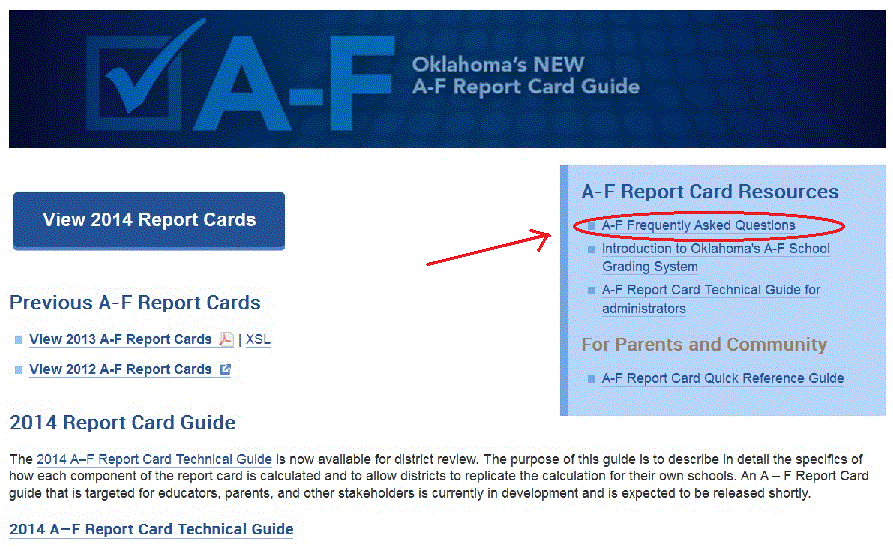
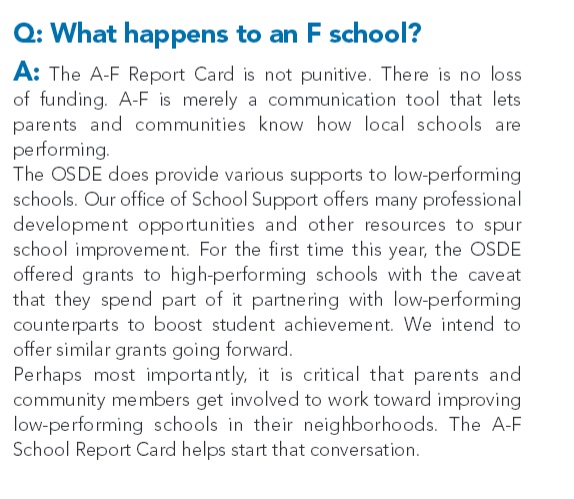
 6. Can you tell the ‘spur’ thing bugs me? You spur a horse that’s not trying very hard or moving very fast. You spur a horse because horses are too stupid to know which way they’re supposed to go on their own. You dig your metal into its flank and keep your bit in its mouth so it will remain compliant – an extension of your own purposes. Spurring suggests schools and teachers get F’s because they’re just not trying very hard. They’re meandering, munching some grass, peeing a long time – just standing there until the SDE comes to do some spurrin’. Giddy-up go, Ms. Hernandez – giddy-up, go! Because you know what grade a horse really wants? A neighhhhh…
6. Can you tell the ‘spur’ thing bugs me? You spur a horse that’s not trying very hard or moving very fast. You spur a horse because horses are too stupid to know which way they’re supposed to go on their own. You dig your metal into its flank and keep your bit in its mouth so it will remain compliant – an extension of your own purposes. Spurring suggests schools and teachers get F’s because they’re just not trying very hard. They’re meandering, munching some grass, peeing a long time – just standing there until the SDE comes to do some spurrin’. Giddy-up go, Ms. Hernandez – giddy-up, go! Because you know what grade a horse really wants? A neighhhhh…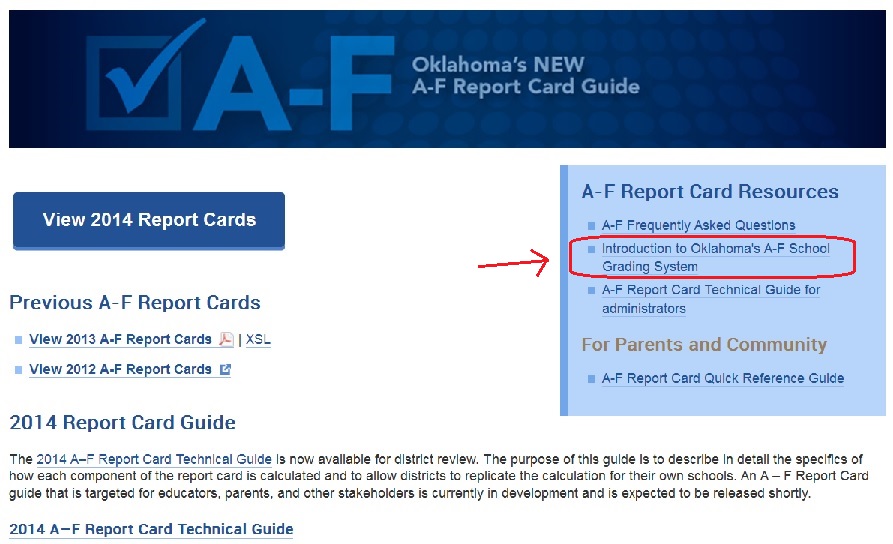

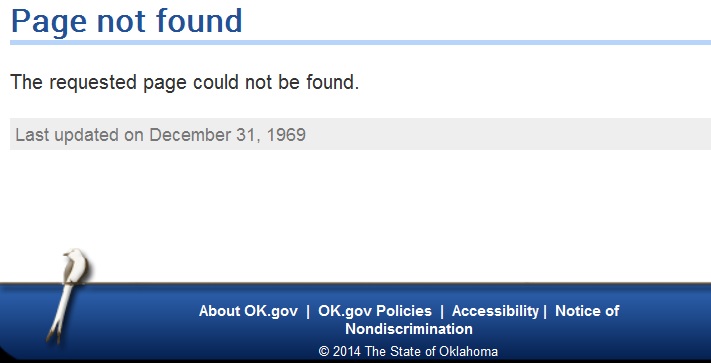
 The State of Oklahoma, like many others, is determined to assign numbers and letters to the schools and teachers within its purview. Like the standardized testing of students on which many of these numbers and letters are based, the conviction seems to be that if you just keep pretending to measure things in ridiculously oversimplified ways designed to guarantee widespread failure, you’re “reforming” the system and calling forth a brighter future for all. This is analogous to – actually, never mind the analogy. It’s just stupid.
The State of Oklahoma, like many others, is determined to assign numbers and letters to the schools and teachers within its purview. Like the standardized testing of students on which many of these numbers and letters are based, the conviction seems to be that if you just keep pretending to measure things in ridiculously oversimplified ways designed to guarantee widespread failure, you’re “reforming” the system and calling forth a brighter future for all. This is analogous to – actually, never mind the analogy. It’s just stupid.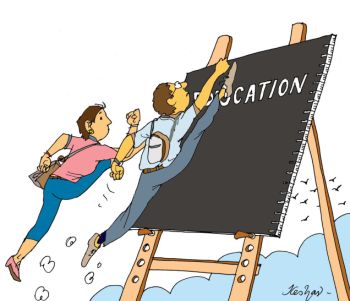 Summative Assessment is the other category. It’s the ‘BIG TEST’ at the end of a unit or a semester. These attempt to document what students “walk away with” in knowledge and skills. The data can identify strengths and weaknesses of individual teachers so we can help each other improve, or help compare classes from year to year. For students it’s generally the finish line, for better or worse – here’s how you did, now off with thee.
Summative Assessment is the other category. It’s the ‘BIG TEST’ at the end of a unit or a semester. These attempt to document what students “walk away with” in knowledge and skills. The data can identify strengths and weaknesses of individual teachers so we can help each other improve, or help compare classes from year to year. For students it’s generally the finish line, for better or worse – here’s how you did, now off with thee.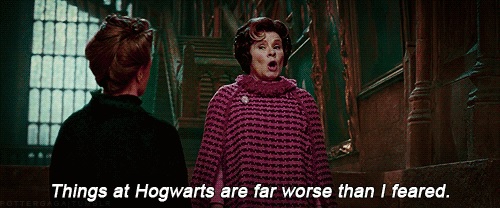 The A-F Report Card given by the State of Oklahoma to its public schools each year does none of the things assessment is supposed to do. It provides no support, and intentionally limits the data it is willing to consider. There are no adjustments on the part of the state based on how well a given school is doing, and no conversation regarding options for improvement. It’s not even measuring most of the things we claim are most valuable to us. It is merely calculated and published, and each year more and more schools are sent to sit in the corner with their ‘dunce’ caps on.
The A-F Report Card given by the State of Oklahoma to its public schools each year does none of the things assessment is supposed to do. It provides no support, and intentionally limits the data it is willing to consider. There are no adjustments on the part of the state based on how well a given school is doing, and no conversation regarding options for improvement. It’s not even measuring most of the things we claim are most valuable to us. It is merely calculated and published, and each year more and more schools are sent to sit in the corner with their ‘dunce’ caps on. There is a good case to be made that part of our job as educators is to prepare students for the ‘real world’ – whatever that is. We could thus argue that deadlines and responsibility are valid goals of public education. In the ‘real world’, you’re expected to do stuff when it needs to get done. Rolling in at 3 p.m. with “hey, here are those burgers you asked for during the lunch rush” isn’t going to cut it, nor will you get paid half if you simply don’t make them at all.
There is a good case to be made that part of our job as educators is to prepare students for the ‘real world’ – whatever that is. We could thus argue that deadlines and responsibility are valid goals of public education. In the ‘real world’, you’re expected to do stuff when it needs to get done. Rolling in at 3 p.m. with “hey, here are those burgers you asked for during the lunch rush” isn’t going to cut it, nor will you get paid half if you simply don’t make them at all.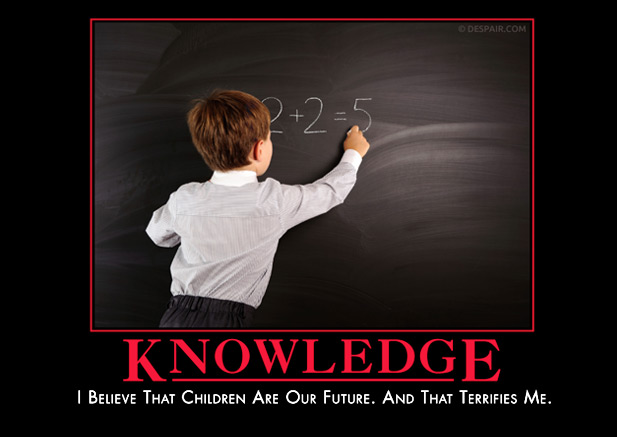 And no matter how modern or flipped or inquiry-based I may try to be, there are still things that require grading. I hate grading, but there’s a limit to how much I can job out to students and still be able to sleep at night. There are things they can learn from peer evaluation, but half-a-class spent announcing that #1 is A, #2 is C, etc., is an embarrassing waste of limited time. Besides, most of what I’m grading isn’t multiple choice.
And no matter how modern or flipped or inquiry-based I may try to be, there are still things that require grading. I hate grading, but there’s a limit to how much I can job out to students and still be able to sleep at night. There are things they can learn from peer evaluation, but half-a-class spent announcing that #1 is A, #2 is C, etc., is an embarrassing waste of limited time. Besides, most of what I’m grading isn’t multiple choice. Yeah, yeah – poor overworked teacher. But this isn’t about me missing my tee time after school. What it means instead is that when I am working, at my desk or at home, I’m spending far more time and energy trying to figure out why little Johnny has handed in a page of Level Questions over some – well, over SOMETHING, I’m not sure WHAT – and whether or not they correspond to anything he’s missing in the gradebook – than I’m spending coming up with better ways to teach Johnny’s 150 peers the next unit. Flexible deadlines and nurturing late work policies mean I spend more time grading than preparing, or teaching, or collaborating, or whatever.
Yeah, yeah – poor overworked teacher. But this isn’t about me missing my tee time after school. What it means instead is that when I am working, at my desk or at home, I’m spending far more time and energy trying to figure out why little Johnny has handed in a page of Level Questions over some – well, over SOMETHING, I’m not sure WHAT – and whether or not they correspond to anything he’s missing in the gradebook – than I’m spending coming up with better ways to teach Johnny’s 150 peers the next unit. Flexible deadlines and nurturing late work policies mean I spend more time grading than preparing, or teaching, or collaborating, or whatever. How many angry lil’ Republicans are created this way – barely into high school and already learning that the harder they work, the more they are expected to drag along those who can’t or won’t, often at the expense of their own progress? At least under the old framework the best and brightest were merely ignored and marginalized under the assumption they’d still pass state tests and stay out of discipline trouble – under this new approach we can actively punish them for being responsible!
How many angry lil’ Republicans are created this way – barely into high school and already learning that the harder they work, the more they are expected to drag along those who can’t or won’t, often at the expense of their own progress? At least under the old framework the best and brightest were merely ignored and marginalized under the assumption they’d still pass state tests and stay out of discipline trouble – under this new approach we can actively punish them for being responsible!